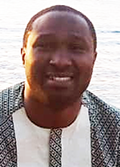Title
Data for Good in Africa - Towards Increased Access and Enabling Data Policies
Abstract
Data has been rightly acknowledged as the future oil of the global economy. As a result of the large amounts of data being produced globally by individuals, households, organizations and nations, the potential for mining insights from aggregated big data has emerged, besides other uses of data. The potential multifaceted use of data for private and public good is fueled by super-fast telecommunication networks which power communications and data capture, transfer, storage and processing. However, while developed economies are pressing ahead to harness the potential of data to transform their societies, Africa has lagged behind in the harnessing of data for public good. In many African countries, basic access to data is still a major challenge, and the policy landscape which enables data for public good is largely lacking. This paper gives an overview of the situation in Africa, where the infrastructure and data policy deficit is hampering the continent’s efforts towards digital development.
Keywords
Access, equality, inclusiveness, information and communication technologies (ICTs), information society
Author
 Babatunde Okunoye
Babatunde Okunoye
(Paradigm Initiative, Nigeria)
Babatunde Okunoye is the Research Officer at Paradigm Initiative, taking the lead in producing all research material which feeds into the advocacy work of Paradigm Initiative in Digital Rights and Digital Inclusion in Africa. This includes the Digital Rights in Africa Report (launched at the Internet Governance Forum since 2016), Policy briefs and policy position papers in response to calls from organizations such as the Nigerian Communications Commission (NCC), National Information Technology Development Agency (NITDA) and the United Nations Human Rights Commission (UNHRC). Babatunde has completed research consulting projects and partnerships for such organizations such as the World Wide Web Foundation, the Open Observatory of Network Interference (OONI), Privacy International, the Engine Room and the Collaboration for Internet Policy in East and Southern Africa (CIPESA).
A Nigerian trained economist; Babatunde has a Certificate in Research Methods for Internet Policy and Advocacy in Africa from the Internet Policy Observatory, Annenberg School for Communication, University of Pennsylvania USA. He is a member of the Internet Society and a 2018 Fellow of the African School on Internet Governance.
 'Gbenga Sesan 'Gbenga Sesan
(Paradigm Initiative, Nigeria) ‘Gbenga Sesan is the Executive Director of Paradigm Initiative. Originally trained as an Electronic & Electrical Engineer at Obafemi Awolowo University, ‘Gbenga completed Executive Education programs at Lagos Business School, New York Group for Technology Transfer, Oxford University, Harvard University, Stanford University, Santa Clara University and University of the Pacific. His consulting experience includes assignments completed for numerous institutions, including Microsoft, Harvard University and United Nations agencies, among others, in over 30 countries. A Schwab Foundation Social Entrepreneur of the Year (2014) and former member of the United Nations Committee of eLeaders on Youth and ICT, he is a CyberStewards Fellow, Crans Montana Forum Fellow, Archbishop Desmond Tutu Leadership Fellow, Ashoka Fellow, Our Common Future Fellow and Cordes Fellow. ‘Gbenga served as a member of the Presidential committees on Harmonization of Information Technology, Telecommunications and Broadcasting Sectors (2006) and Roadmap for the Achievement of Accelerated Universal Broadband Infrastructure and Services Provision (2013), and was listed by CNN as one of the Top 10 African Tech Voices on Twitter and by Ventures Africa as one of 40 African Legends Under 40. ‘Gbenga is married to Temilade Sesan, PhD, an expert on Energy Poverty and Development. |